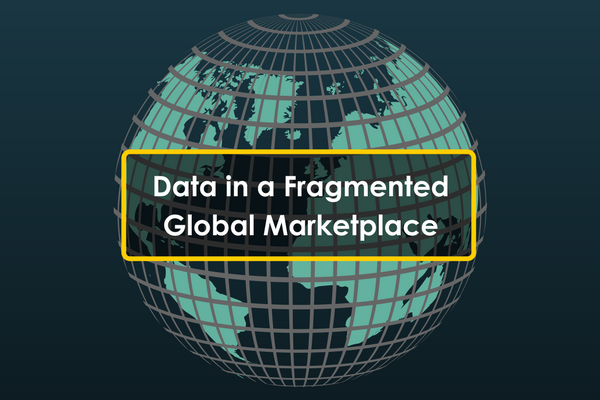Tech knows the future of business is digital, and that digital means global. Entrepreneurs and developers make concepts a reality, refine software, and launch new products all within the digital space. But what about when your customer base expands beyond your home country’s market, or your data enters the cloud? Will you even notice? How does your existing and new consumer data cross borders, and what regulations guide this expansion? What happens if you just do nothing? (For more on this, see our news item on the EU GDPR from a US perspective)
Regulation of data is a global undertaking, and new research by Accenture argues that “increasing obstructions to the flow of data…are jeopardizing the journey toward global digital business models.” Or simply put, “data fragmentation.” The Alliance and its members work hard to promote developer and tech-friendly cross-border data policies and regulations between the US and Europe. But there is much more work to be done before a global framework is established.
According to the research, over 1,200 trade-restrictive measures were adopted by G20 countries since 2008 and regulations controlling data have tripled over the past two decades. Notably, the survey asked “how likely is it that your company will exit a market, or will delay or abandon market-entry plans, due to increasing barriers to globalization?” To which an alarming 74% of respondents answered likely over the next three years.
Complexities in how companies will function in the global market will increase, from greater security risks to finding talent to cross-border compliance. Respondents noted that capabilities like cloud services, cross-border analytics, and operations across national IT standards will be compromised. Yet, some good news: new technologies such as the Internet of Things, artificial intelligence, and blockchain could help companies be prepared to enter the widely-varied regulatory environment.
The Alliance engages on policy in both the US and Europe that would impact companies handling data in multiple markets across the globe. Most recently, we’ve tracked the EU-US Privacy Shield and the European Commission’s report supporting its continuation. This framework attempts to bridge the differences in how the two regions view privacy rights and streamlines the process by which US companies can transfer data back and forth across the Atlantic.
Similarly, we’ve engaged in the ePrivacy Regulation debate in Europe where we have raised concerns over provisions that create new obstacles for startups and SMEs by overlooking data’s role in the EU digital economy. Europe, for example, already has legal instruments that regulate data management and protection (i.e. General Data Protection Regulation). Creating further regulation adds to the growing list of trade-restrictive measures the Accenture research highlights that will ultimately inhibit innovation.
Policies like those the Alliance tracks are often created with the best of intentions to strengthen privacy and security for consumers. But their protectionist approach can stifle innovation and limit companies’ success in the global digital marketplace. The Alliance and our members advocate for a global framework that guides the tech industry — in a cohesive, non-fragmented way — on how data is moved, collected, and shared around the world.






